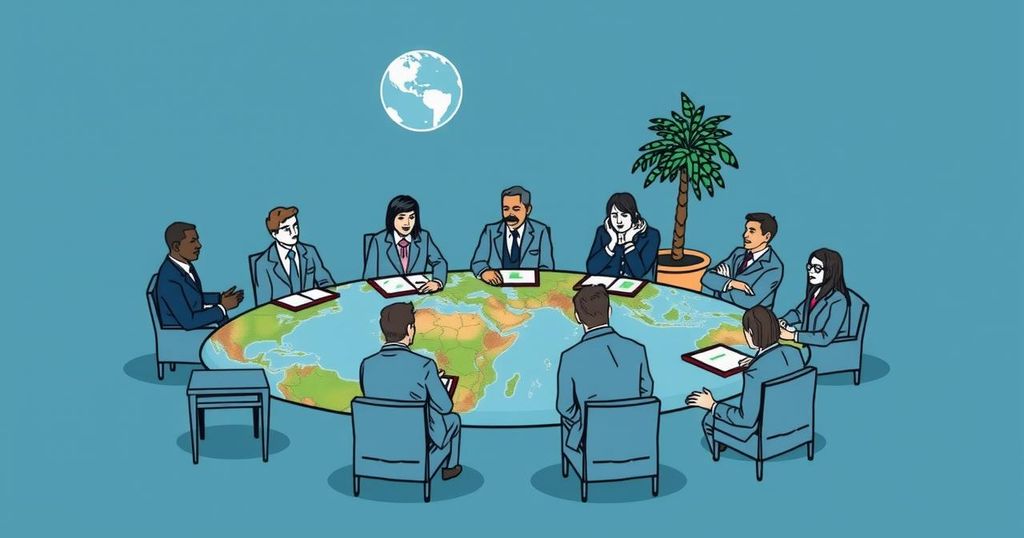At COP29, developed nations agreed to increase climate funding to $300 billion annually by 2035, falling significantly short of the estimated $5.8 trillion needed by developing countries by 2030. The late-night negotiations concluded after lengthy discussions where delegates expressed concerns about the adequacy of the new financial targets. Experts and developing country leaders asserted that the promised funds do not sufficiently address the challenges posed by the climate crisis. Immediate and substantial financial commitments are necessary to support climate action globally.
During the recent COP29 climate conference, developed nations agreed to boost climate funding for developing countries from $100 billion to $300 billion annually by 2035. While this increase aims to assist developing nations in enhancing renewable energy capacities and adapting to climate impacts, experts assert it falls significantly short of the funds needed for meaningful climate action. A prior UN report indicated that developing nations require at least $5.8 trillion by 2030 to address the consequences of climate change, which they have contributed negligibly to causing.
The final agreement was reached in a marathon negotiation session that extended beyond the conference’s scheduled conclusion, highlighting persistent challenges in coordinating climate diplomacy. Previous climate summits have also faced delays, with contentious discussions around fossil fuel commitments and loss and damage funding.
UNFCCC Secretary-General Simon Stiell described the new financial target as an “insurance policy for humanity,” emphasizing the importance of fulfilling commitments to protect vulnerable populations. Yet, experts expressed dissatisfaction, suggesting that the proposed funding level is insufficient and highlights the need for new negotiation frameworks to address the climate crisis effectively.
Calls for more rapid and substantial financing resonate with developing nations, where leaders decried the $300 billion target as inadequate. Critics highlighted the disparity between the financial asks of under-resourced countries and the offered aid, criticizing the U.S. for prioritizing its mitigation strategies while undermining commitments made under international agreements.
Although some participants described the outcome as a minimal diplomatic success, voices from the developing world emphasized a growing urgency for immediate action to address climatic transformations. With the dire impacts of climate change already unfolding globally, particularly demonstrated by the recent natural disasters in the Philippines, many advocates are increasingly calling for immediate and substantial financial investments to avert worsening crises.
The discussions surrounding international climate finance often reveal substantial gaps between the needs expressed by developing nations and the commitments made by developed countries. Historically, developed nations have committed to help financially support developing countries to tackle climate change, a promise that has regularly faced criticism for being unfulfilled or insufficient. Given the significant economic disparity and the varying contributions to global emissions, climate finance has become a pivotal issue in international negotiations, particularly in the context of global agreements like the Paris Agreement. Over the years, the negotiations have become increasingly complex, entangled in geopolitical tensions, local political landscapes, and the urgent need for effective climate action to mitigate severe climate impacts globally.
In summary, COP29’s decision to increase climate aid to $300 billion by 2035 has been deemed a modest advancement yet fundamentally insufficient to meet developing nations’ urgent needs. The call for a much higher funding level reflects the complexity and scale of the crisis, with experts stressing the immediate necessity for more robust financing mechanisms. Ongoing criticisms of commitments made by developed nations indicate the pressing need for immediate, comprehensive action to counteract the escalating climate crisis affecting vulnerable populations worldwide.
Original Source: e360.yale.edu






